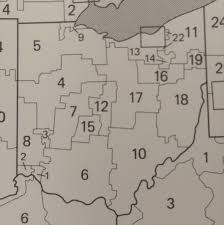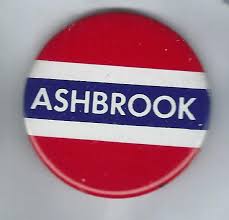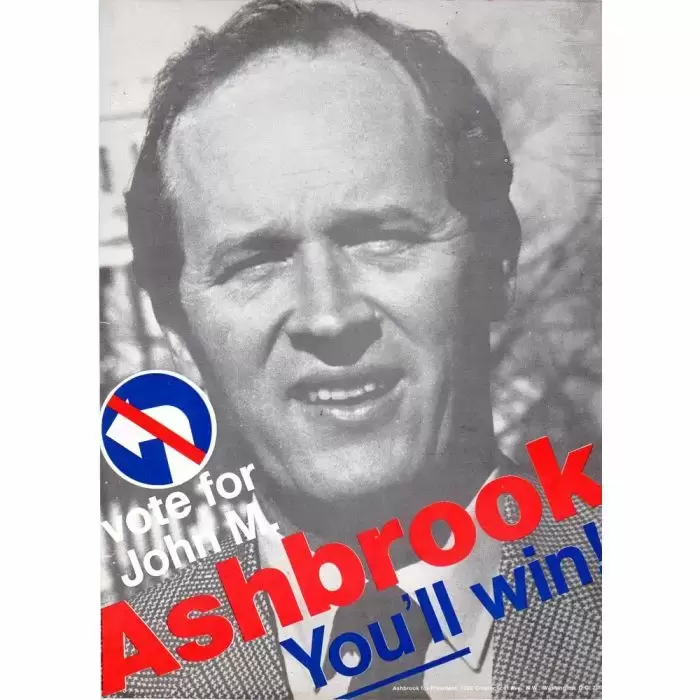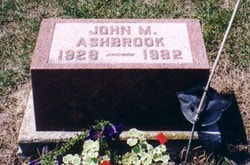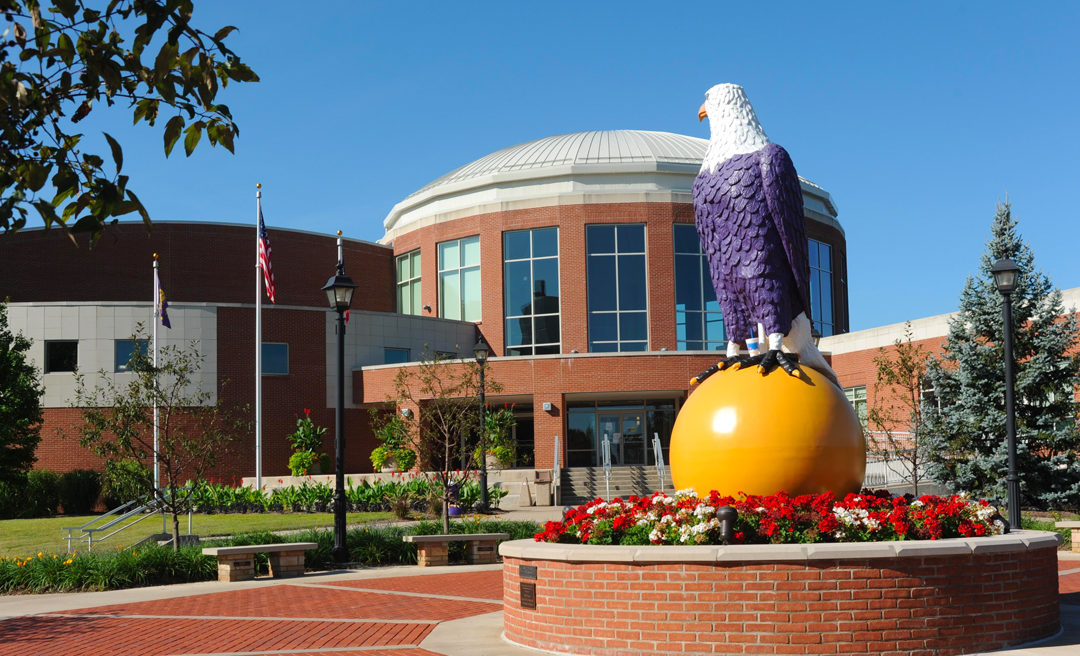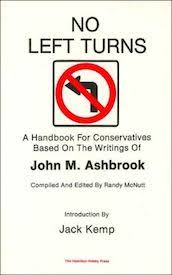Congressman John Ashbrook (1928-1982)

John Milan Ashbrook
Johnstown, Ohio
Born: September 21, 1928
Died: April 24, 1982
Represented Ohio’s 17th Congressional district for 21 years.
Congressman John Milan Ashbrook was born in Johnstown, Ohio, the son of William Albert Ashbrook, a U.S. congressman and businessman, and Marie Swank.
He joined the U.S. Navy in 1946, after graduating from high school, and served until 1948. He was a member of Admiral Richard E. Byrd’s final Antarctic expedition.
In 1948 he married Joan Needels; they had three children and divorced in 1971. He received an A.B. with honors from Harvard University in 1952 and a J.D. from Ohio State University Law School in 1955. Ashbrook did not practice law.
Instead in 1953 he had become publisher of the Johnstown Independent, a weekly newspaper founded by his father in 1884. Even after he had been in Congress for many years, he still considered himself first and foremost a publisher. When asked about his often precarious political existence, he claimed not to worry because he "would rather be a printer" anyway.
Excerpt from Peter W. Schramm, in American National Biography, Volume I, ed. John A. Garraty and Mark C. Carnes (Oxford University Press, 1999):
Johnstown, Ohio
Born: September 21, 1928
Died: April 24, 1982
Represented Ohio’s 17th Congressional district for 21 years.
Congressman John Milan Ashbrook was born in Johnstown, Ohio, the son of William Albert Ashbrook, a U.S. congressman and businessman, and Marie Swank.
He joined the U.S. Navy in 1946, after graduating from high school, and served until 1948. He was a member of Admiral Richard E. Byrd’s final Antarctic expedition.
In 1948 he married Joan Needels; they had three children and divorced in 1971. He received an A.B. with honors from Harvard University in 1952 and a J.D. from Ohio State University Law School in 1955. Ashbrook did not practice law.
Instead in 1953 he had become publisher of the Johnstown Independent, a weekly newspaper founded by his father in 1884. Even after he had been in Congress for many years, he still considered himself first and foremost a publisher. When asked about his often precarious political existence, he claimed not to worry because he "would rather be a printer" anyway.
Excerpt from Peter W. Schramm, in American National Biography, Volume I, ed. John A. Garraty and Mark C. Carnes (Oxford University Press, 1999):
|
"As one of John's colleagues in the House, I know first hand that he was recognized on both sides of the political aisle as a fierce but fair advocate, as a dedicated and tireless worker, as one of those rare individuals who would rather stand alone in fighting for what he thought to be right than compromise his beliefs." — George H. W. Bush
|
"John Ashbrook was a man of courage and principle. He served his constituents and his country with dedication and devotion, always working towards the betterment of his fellow man. His patriotism and deep belief in the greatness of America never wavered and his articulate and passionate calls for a return to old-fashioned American values earned him the respect of all who knew him." — Ronald Reagan
|
|
More Background information . . .
Ashbrook's newspaper career ensured him wide public exposure, and in 1956 he was elected as a Republican to the Ohio General Assembly where he served two terms. A vacancy led him to seek election to Congress from the Seventeenth District in 1960. During that campaign he warned his constituents against "unbridled national power with a resultant loss of individual freedom and local autonomy." He won what was a safe Republican seat and served without interruption for twenty-two years. He served on the House Internal Security Committee (formerly the House Committee on Un-American Activities) and on the Education and Labor Committee. An ardent conservative and one of the most articulate anti-Communists in Congress, Ashbrook used his committee assignments to oppose the expansion of federal aid to education and other New Deal and Great Society programs. Throughout his political life he acquired a nationwide reputation as an intelligent, candid, and persuasive champion of the conservative cause. By the end of Richard Nixon's first term as president, Ashbrook had established himself as a national political leader with impeccable conservative credentials, and he contributed energetically to the national conservative movement. He had been chairman of the Young Republican National Federation from 1957 to 1959; one of the founders of the American Conservative Union, serving as chairman from 1966 to 1971; and on the Steering Committee of the Committee of One Million against the Admission of Communist China to the United Nations, whose campaign began in 1953. Although Ashbrook was one of the founders of the draft Barry Goldwater movement in 1963 and supported Goldwater's presidential candidacy in 1964, he supported Nixon's bid for the Republican presidential nomination in 1968. He urged fellow conservatives not to bolt to the third-party candidacy of Alabama governor George Wallace, arguing that Nixon's election would provide a unique opportunity to build a nationwide conservative coalition. By December 1971 Ashbrook publicly broke with the Nixon administration, criticizing "the presentation of liberal policies in the verbal trappings of conservatism." He especially opposed the president's budget deficits, wage and price controls, and recent rapprochement with China. New Deal policies, he claimed, "have not been changed but extended and refined" under the Nixon presidency. At the end of 1971, Ashbrook announced his intention to oppose Nixon's renomination in a number of Republican primaries. In justifying his candidacy, he denounced the Nixon administration for squandering an opportunity to build a conservative coalition to govern the country: "The result of such leadership could well have been a period of conservative and Republican ascendancy to match the Democratic era that followed upon the victory of Franklin Roosevelt. Instead, the net result of this administration may be to frustrate for years to come the emergence of the conservative majority." Ashbrook denied that his purpose was either personal ambition or the expectation of success, rather offering his candidacy as the "rallying point" for those Americans who wanted to remind Nixon of his campaign promises of 1968. Adopting the motto "No Left Turn," he called his campaign in New Hampshire "a small Paul Revere ride." Although he received only 9.6 percent of the vote in the Republican primary in New Hampshire, he pushed on to Florida, where he got less than 9 percent. The campaign was chaotically run and always in financial difficulties, and his 10 percent showing in California persuaded him to withdraw from the presidential contest. He supported Nixon's reelection campaign in 1972 "with great reluctance." In 1974 Ashbrook married Jean Spencer. Although unsuccessful in shaping congressional policy substantially, Ashbrook's conservative challenge to an incumbent Republican president paved the way for Ronald Reagan's challenge to Gerald Ford's nomination in 1976. That challenge fell short, but it cleared the way for Reagan's successful nomination and election in 1980. Reagan became the beneficiary of a new conservative majority that Ashbrook had helped create. In 1982, Ashbrook announced that he would seek the Republican nomination to oppose the incumbent Democratic senator Howard Metzenbaum, and most political observers thought that he would win the GOP nomination. However, while campaigning in March, he collapsed in Mansfield, Ohio, and died a month later in his office in Johnstown. |

Ashbrook Center
Ashland University, Ashland, Ohio The Ashbrook Center for Public Affairs at Ashland University was named for Ashbrook in 1983. A periodic John M. Ashbrook Memorial Dinner at the center features leading conservative speakers from President Ronald Reagan (first dinner; dedication of the Center, in 1983) and Margaret Thatcher (1993) to Mitt Romney (April 2010) and John Boehner (June 2011). The collection spans the years 1950 to 1982 and consists of 309 linear feet of predominantly congressional papers with some personal and business files. See also John M. Ashbrook and Randy McNutt, No Left Turns: A Handbook for Conservatives Based on the Writings of John M. Ashbrook (1986); Charles A. Moser, Promise and Hope: The Ashbrook Presidential Campaign of 1972 (1985); and U.S. Congress, Memorial Services Held in the House of Representatives and Senate of the United States, Together with Tributes Presented in Eulogy of John M. Ashbrook, Late a Representative from Ohio, 97th Cong., 2d sess., 1982. Obituaries are in the New York Times and the Washington Post, 25 Apr. 1982. The preceding, written by Peter W. Schramm, is from the American National Biography, Volume I, ed. John A. Garraty and Mark C. Carnes (Oxford University Press, 1999) |
